#sacred mundanity
Explore tagged Tumblr posts
Text
A Prayer for Workers On Break
God of mercy, this midday moment of rest is Your welcome gift. Bless the work we have begun, make good its defects, and let us finish it in a way that pleases You. Grant this through Christ, Our Lord. Amen.
concluding prayer for Midday from the Liturgy of the Hours, on Wednesdays in Ordinary Time
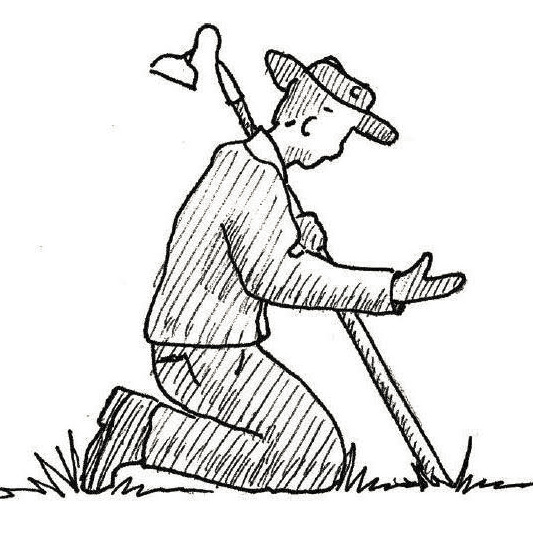
103 notes
·
View notes
Text
#Winnie-Hans mashup But also, original Danish: Hele verden er en række af underværker, men vi er så vante til dem, at vi kalder dem hverdagsting.

294 notes
·
View notes
Text
What fascinates me the most about Gwen’s enchantment, is how cleverly Morgana uses skills that held importance to her old life, as assets in her plots against Arthur and the greater kingdom.
In A Lesson in Vengeance, we’re told that Tyr Seward had seen the traitor un-stitch and re-stitch the girth of Arthur’s saddle, which promptly breaks when the planned bandit attack comes to play. This is evil!Gwen’s doing obvs, but pays a reference to a younger version of her, who’d embroider the most dainty flower arrangements onto the bodice of her servant gowns, or who helped design and create an entire chainmail set for Lancelot’s first attempt at becoming a knight, after Merlin commisions her help.
Or in The Hollow Queen, we briefly see her use the key placed on top of the dungeon gate (the one Daegal places there for her to get to later), and it makes me think… how would he get his hands on it in the first place?
Morgana’s plan was too meticulous to not involve making a copy of the key so Gwen isn’t under immediate suspicion for the original going missing in the first place. I think she made a copy of it herself, just like she did in The Coming of Arthur, by using her father’s forge and kicking into those ygrained skillsets on how to do it.
Using Gwen’s very own hands, she’s made to undo everything she worked for, mislead everyone she loves, and it’s all, horrifyingly, muscle memory.
#something something the body horror is when even the most familiar mundane parts of your are mechanized for a greater all-knowing evil#i think this also goes back to the subservient way morgana sees gwen— she calls her ‘my lady’ but has her desecrate all the parts of hersel#most related to her past#nothing is sacred anymore… nothing is safe.#guinevere pendragon#morgana pendragon
96 notes
·
View notes
Text
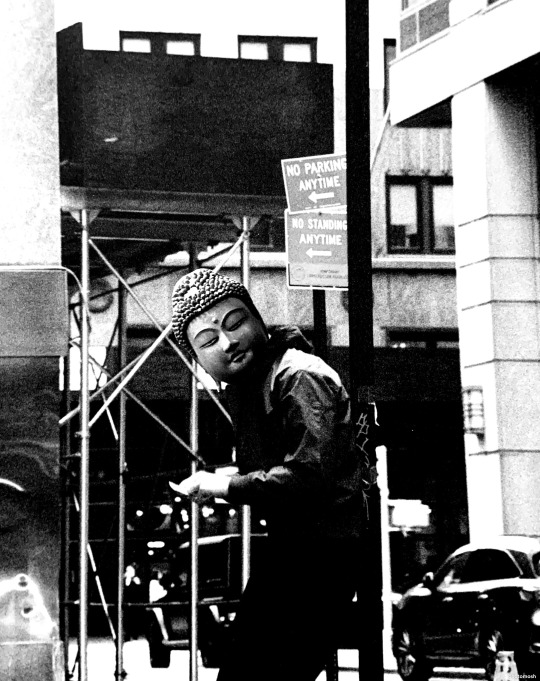
you understand that in the mundane there is nothing sacred, but what you have not yet understood is that in the sacred there is nothing mundane
155 notes
·
View notes
Text
I should get an award for my restraint in not automatically blocking people who say things like "I hate paladins, they suck so much, they're the worst class bc their vibes are so bad" on my posts that even just mention paladins.
RIP that you and most people do not understand paladins as a class and do not understand that their narrative is not just "stick in the mud who loves being a cop", but I'm different and I think they're incredible and they're one of the classes with the best inherent narrative
#to dedicate yourself to a value you hold dear and integral that your love for and service to that ideal becomes itself divine and sacred#to distill what is core to yourself down into so few words; to say 'this is what I am and will be and always was' and make that unshakeable#to have so much faith in your understanding of who you are and what you have sworn to be that THAT is what is holy: your mere dedication#to be so beholden to these values that you promised to uphold against EVERYTHING else: against law; against country; against sovereign#it is about being so dedicated to an oath that you have sworn and the purpose it decrees that you transcend a mundane life#oh to be the sword of the divine and the wrath of god incarnate and the hand by which the heavens does its works
464 notes
·
View notes
Text
Lines Written a Few Miles Above Tintern Abbey on Revisiting the Banks of the Wye During a Tour, July 13th, 1798 (lines 34-36a)
That best portion of a good man’s life; His little, nameless, unremembered acts of kindness and of love.
William Wordsworth
26 notes
·
View notes
Text
If Caravaggio were alive today today, he would have loved the cinema; his paintings take a cinematic approach. We filmmakers became aware of his work in the late 1960s and early 1970s, and he certainly was an influence on us. The best part for us was that in many cases he painted religious subject-matter but the models were obviously people from the streets; he had prostitutes playing saints. There’s something in Caravaggio that shows a real street knowledge of the sinner; his sacred paintings are profane.
Martin Scorsese on Caravaggio
Michelangelo Merisi, known to most of us as “Caravaggio,” was born on September 29, 1571 in Milan, Italy, to parents who were from the small town of Caravaggio. In the span of his 38 years long life he revolutionised painting with innovations like a unique use of chiaroscuro - with dark shadows contrasting with dramatic areas of light - and a deep sense of realism that later inspired the Baroque movement. But most of all, he developed such an iconic style that most of us can probably look at a painting and know if it’s a Caravaggio, or Caravaggio-inspired.
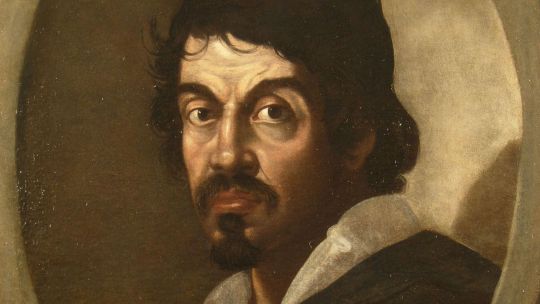
Merisi spent the first few years of his life in Milan, studying painting, and later moved to Rome, where his early talent impressed Cardinal Del Monte, who introduced the young painter to other high-profile Catholic figures who became commissioners of some of Caravaggio’s best work. It seemed there was no end to the artist’s creative genius. Caravaggio, much to his patron’s delight, would pump out one masterpiece after another. It seemed the more out of control his personal life became (cheating, brawling and murder were standard fare), the more his art would become more refined, more potent.
In the long list of masterpieces he left behind, both secular and religious works stand out. But it is perhaps in his religious works that the artistic transition of the master is more evident. Caravaggio is, in fact, known to have changed his style after harsh personal life experiences led him to reassess his outlook on life.
In May of 1606 Caravaggio took part in a deadly brawl in Rome and was charged with murder. He fled to Malta, in search of asylum from the Order of Saint John, a Catholic order dedicated to helping the sick and the poor. The order commissioned some of the most important late life works of the Milanese artist.
It is in these works that we notice the shift in Caravaggio’s art, from a strong focus on aesthetics to an interest in the spirituality of his subjects, which critics believe was motivated by his own introspection.
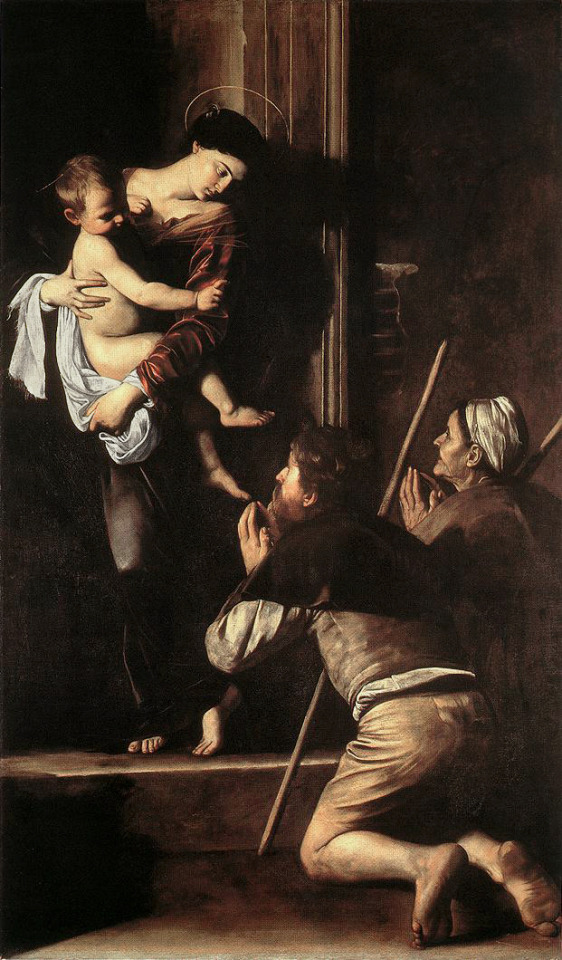
On the streets surrounding the churches and palaces, brawls and sword fights were regular occurrences. In the course of this desperate life Caravaggio created the most dramatic paintings of his age, using ordinary men and women - often prostitutes and the very poor - to model for his depictions of classic religious scenes.
By representing biblical characters in a naturalistic fashion, typically through signs of aging and poverty, Caravaggio's populist modernisation of religious parables were little short of trailblazing. Although not without his critics within the church, by effectively humanising the divine, Caravaggio made Christianity more relevant to the ordinary viewer.
For some, though, his art was too real. Bare shoulders, plunging necklines, severed heads; this raw humanity didn’t always fly in 17th century Rome. As a result, many of his pieces were rejected as altar pieces and as church hangings. One such piece, the Madonna of Loretto (now hanging in a church in Rome) was widely criticised upon its unveiling. The people of the day were shocked to behold the Mother of God leaning nonchalantly against a wall in her bare feet while holding baby Jesus in her arms.
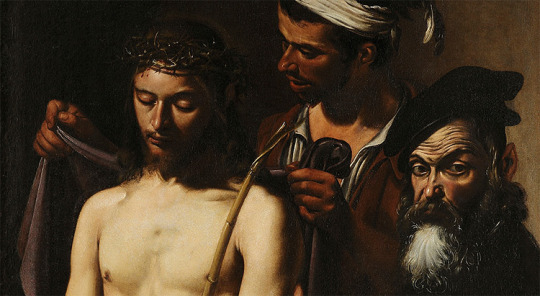
It is ironic that the very art that today we consider “classical” and “iconic” to the Catholic faith was considered questionable and perhaps void of modesty and virtue. Yet, the fact remains that no individual artist has made such a lasting impression on the world of modern art. Truly, many have called Caravaggio the “first modern artist”. It is no surprise, then, that his style has sparked both widespread admiration and imitation throughout the centuries.
Before Pope John Paul II refined a theology of the body beautiful, Caravaggio's paintings suggested a reverence for the inherent beauty of human form.
Troubled though he may have been, his art speaks eloquently of the dignity of the mundane. Though the original medium may be weathered and cracked, the message of beauty still echoes down the centuries. And this same beauty still fuels, escapes and reduces artists to relentless seekers as surely and as forcefully as it did in Caravaggio's life.
#scorsese#martin scorsese#quote#art#artist#caravaggio#art history#aesthetics#modern#sacred#profane#rome#catholic church#christian#beauty#realism#art of the mundane
428 notes
·
View notes
Text
Spicy take: I'm starting to think that the concept of "trickster" is about just as meaningful as the concept of Hero's Journey.
Sure, you can fit a lot of stories into it and some were written with that specific archetype in mind but also it conflates Joker, Odysseus, Br'er Rabit and Slavic folktales protagonists and I don't think these should belong in the same category.
Boundary crossing can be done for many reasons and in many ways. The need to lump all such characters into a single category says more about our over-reliance on rigid structures, the lack of play in our culture and a desperate need for something else.
#I'm sure there's a dissertation written about it somewhere#if not I'm considering getting another education#if I think about axes of classification#there's contact with the sacred or a lack of it (a lot of so-called modern 'tricksters' only deal with the mundane)#there's willingness or unwillingness to perform that role (some 'tricksters' are doomed by the narrative)#some only seek fun but I've seen characters with personal goals being called tricksters#and then they can fit into the culture itself differently#a cultural hero. a hero of an oppressed minority. a wise being symbolising acceptance of paradoxes. an evil spirit#why is the same word applied to all of them#simply because they aren't bound by so-called rational thinking and society's rules?#come on I want more nuance#when a person says they like trickster characters I don't know what they mean anymore#for me it mostly means they need a drink and someone accepting of their weirdness#meanwhile the exact traits of their favourite characters will vary wildly
23 notes
·
View notes
Text
Was I, until this moment, mostly a lurker on f1blr? Yes.
Was I, on friday night, possessed by the muses? Yes.
Did I, as a result of said possession, write 1.6k words of a formula 1/silt verses au from the perspective of Alex Albon having Slightly Mean Thoughts about his fellow drivers and the gods they have to deal with for PR reasons? Indeed.
We shall see what comes of this
#everyone is Professionally Concerned that charles might turn into a monstrous and divine horse saint#logan might be sacrificed if he doesn't score points#its all very mundanity of the sacred#not sure if i'll make it galex bcs it might just not come up#f1#formula 1#alex albon#the silt verses#tsv
11 notes
·
View notes
Note
Hi Pia,
If this is too personal feel free to ignore! I was inspired to ask this after looking over your stunning artwork.
I gather you practise (and are trained in?) animism and shamanism. I'll admit I don't know much about spirituality but I'm really interested! If you're comfortable, I'd love to hear about your journey. When did you discover these beliefs, how do they interact with your everyday life? Do you believe in other spirit realms? Have you had any particularly memorable spiritual experiences? Where in your writing can we see these influences?
Sorry for the bombardment of questions (I've really had to hold myself back lol), feel free to be selective in the ones you'd like to answer.
Hiya,
I don't really call it shamanism and haven't in a long word (it's a culturally appropriative term), I've been using functional or practical animism for a long time now. Maybe just under a decade!
I discovered these beliefs in childhood (some are familial). These days I practice Druidry through OBOD, the Order of Bards, Ovates and Druids, and I'm in the Ovate grade and have been for a looooong ass time.
When did you discover these beliefs, how do they interact with your everyday life?
This could be a long essay, but I'll just say that my writing is my Bardic work, it influences how I connect to nature, people, how I think about the world, and how I think about connections within the world. So pretty profoundly.
Do you believe in other spirit realms?
Sort of. I have a very kind of...relaxed view that goes like this: Maybe it's real, maybe it's not. Science is cool. If it's not real, it's an awesome series of visualisations and beliefs that makes my life better. If it is real, it's an awesome series of experiences that makes my life better. The moment it stops doing that, I'll walk away.
Like, I'm pretty zen about it. So many people are like 'but how do you know it's REAL' - I don't! I don't base it on whether or not it's empirically provable because the benefits are empirically demonstrable whether or not it's real and that's all that matters to me.
It benefits me, my loved ones, and my life. So...that's all the 'real' I need. I'm not interested in convincing anyone else of my beliefs and I'm very anti-proselytisation and preaching. People can believe what they want unless/until it threatens my existence re: people being transphobic / homophobic etc.
Have you had any particularly memorable spiritual experiences?
I have! But this isn't the place where I talk about them, lol. I used to very actively blog about my spiritual experiences (and actually used to run classes and educate folks) over at Dreamwidth and Livejournal.
Where in your writing can we see these influences?
I mean I wrote an entire 1 million+ word series about the fae realm that goes into great detail about how there's no such thing as pure good or pure evil (with a few exceptions one of those being Seelie lmao) and mostly everyone is shades of grey and is capable of growth and connection with nature is healing, in a story where animism is everywhere and gods are literally present in the land.
...And you know in every single section where nature is healing in every single one of my stories sdfalkfjsad
Also probably in a lot of the kinds of hero journeys I write.
My spirituality is everywhere, but it's also not an invasive spirituality where I'm trying to convert anyone. I believe in the importance of nature and our connection to it, so I write about the importance of nature and our connection to it. I believe certain experiences in nature can be healing, so I write my characters sometimes having those experiences in nature.
Most of my characters go through a 'oh nature exists and is...kind of cool actually' moment in their healing process to signify how far they've come, and I use that as a metaphor all the time.
I don't want it to feel religious. It's just like, hey, here's a thing. And since we all live in a world with some nature in it, maybe it's okay to have some nature in stories too, as a treat.
That's spiritually significant to me, it doesn't have to mean anything to anyone else.
But it does mean my spirituality and belief in animism is everywhere. It's something I live. It's mostly a very relaxed thing, and I think it's really just something you notice when I'm like 'oh look the clouds are really cool' and then I take a photo fdsalkjfsa
#asks and answers#personal#i don't *intentionally* write my spirituality into things#it's more just that i was raised with it#and it comes naturally to me#to believe that nature is sacred#and our relationship to it can always be improved#intentionally and unintentionally#my gods are in the earth and the trees and the sky and the sea#i write immanence and not transcendence#there are sacred moments in all of us#in nature#and in the most mundane acts#no one has to believe any particular thing to enjoy that#so yeah! that's basically where i am with it#pretty cruisy after all these years#administrator gwyn wants this in the queue
14 notes
·
View notes
Text
there's something so soft and even a bit healing in running errands with friends as an adult. My high school bestie lives a few hours away but stayed over for her birthday last night, and we ended up making a Costco trip with one of our other high school best friends and his partner -- a dramatic hunt for the squishmallow bin (hiding, oddly, back by the frozen food), giggling over nonsense jokes over a children's book that facilitates dinosaur mashups, looking at home goods we hope to one day have or laughing at strange patterns on cookware, one person scouting ahead to claim the spoils of the food court while the rest check out...
there's something sacred there, something holy... a pilgrimage home, many miles from where home once was.
#our lives are each so much different than they were at 15#but somehow we still each fit together so familiarly#making room to embrace the new bonds we each bring back with us#Zoe is sleep deprived in the best of ways after staying up all night playing board games and eating dino nuggets#finding the sacred in the mundane#i hope to find more of it#zoe rambles
12 notes
·
View notes
Text
Do your best to establish your health; do your best to be cheerful with others; do your best to have a succession of reasonable amusements and occupations. You will soon become an altered being. God bless.
George Porter, S.J., in a letter written on June 7th, 1886, just months before becoming Archbishop of Bombay
8 notes
·
View notes
Text
It's drizzling rain outside. I sat under the canopy for a few minutes just listening to the rain. Watching the drops fly through the air. Seeing the grass bend in the wind.
It is always too long since the last time I felt rain on my skin. Obviously I don't suggest going out in pouring down rain but if it's just a little rain, the drops are tiny touches with little boops mixed in.
Standing in the rain even just for a minute is a holy sacrament for me. I say "here I am" and the world says "there you are"
5 notes
·
View notes
Text
“There's also a richness to Catholicism that makes it very fertile ground for poetry, metaphor and symbolism.
One aspect of Catholicism that especially influences my poetry is the idea of sacramentality, which means that God and the sacred can be experienced through the senses and through ordinary experience.To me, the idea that the sacred can be experienced through something tangible is similar to poetry, where words have both a literal meaning and a deeper meaning. One thing that Catholicism teaches is that the "ordinary" work that we do - our jobs, doing chores, raising children, etc. - can actually be sacred if we're fulfilling our state in life. You don't have to do extraordinary things. A lot of my poetry is about finding the sacred in the mundane.”
- Sarah DeCorla-Souza interview with Gregory Luce, read here.
#Sarah DeCorla-Souza#on poetry#on catholicism#sacrality#the sacred and the ordinary#fnding the sacred in the mundane
3 notes
·
View notes
Text
My freshman year English teacher made us do this as a punishment for rowdy behavior (I guess) one day. He placed a chair in the middle of the circle of desks and told us to write a page about the symbolism of the chair. The punishment aspect sucked and he wasn’t a great teacher in general, but the exercise stuck with me. You can look at anything mundane and see so much value in it and everything that came together that made it exist.
HEY IF YOU ARE READING THIS DO ME A FAVOR
go into another room and pick up a random object and look at it!!
like really look at it!!!
SOMEONE designed that!!
a real life living person set time aside to design that
you will probably never know their name but you should thank them and all the other designers who make the mundane things in your life because otherwise life would be boring with out them
#might have led to my belief that everything mundane is sacred and everything sacred is mundane#all you have to do is decide to look at it and put that symbolism into it
50K notes
·
View notes
Text
I love how Tamsyn Muir was like, in this world everybody’s totally cool about gender and sexuality, but there’s a new invented binary that’s culturally and religiously defining and dictates who people are allowed to love and/or fuck and the roles they play in society.
They’ve written volumes and volumes of religious texts about how to conform to these sacred binary roles and filthy porn about people fulfilling or breaking the stereotypes of these roles. The role a person fulfills is determined before they’re born and dictates every aspect of their life. Once in a while someone who’s supposed to be on one side of the socioreligious binary is born more suited to the other side and has to hide it all their life (Coronabeth). Sometimes people fall in love in a way the socioreligious binary declares blasphemous and they decide to love each other openly anyway, and it shocks and scandalizes people no matter how wholesome and lovely and mundane their relationship is (Abigail and Magnus).
And these sacred binary roles are not equal, oh no, as much as the religious doctrine crows the importance of both roles, one is supposed to sacrifice endlessly and unquestioningly for the other, body, mind, and soul. And these binary roles have existed for ten thousand years and were created by God and underlie the whole structure of the universe! But here’s the secret: there was a time before this sacred binary existed, and God is just Some Guy who made this shit up.
#the locked tomb#gideon the ninth#harrow the ninth#nona the ninth#slapping roof of book series#this motherfucker can fit so much gender in there
14K notes
·
View notes